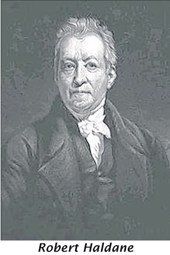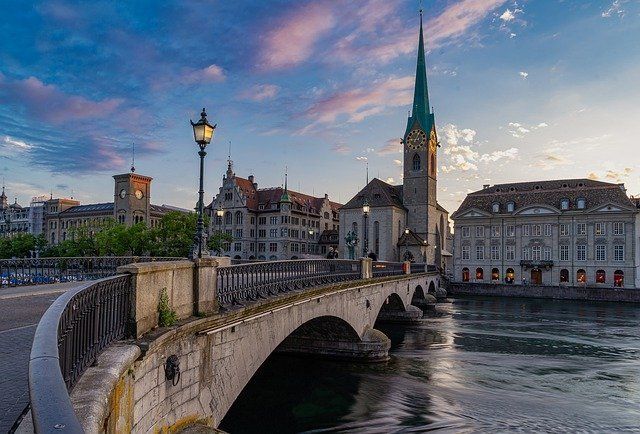
Nearly 500 years ago, between 1528 and 1536, the Reformation took root in the French-speaking cantons of Neuchâtel, Vaud, Geneva and Bernese Jura.
This occurred largely through the influence of William Farel, Pierre Viret and John Calvin.
But during the eighteenth century, their biblical teaching was rapidly replaced by a heresy called Socianism, which denies the doctrine of the Trinity.
So by the early nineteenth century most Swiss pastors doubted or rejected the truth of Christ’s deity.
Revival
But during that century the gospel flame was fanned into life by a number of local Christian awakenings (or revivals). The most noteworthy of these took place among students of the Geneva Faculty of Theology.
Disillusioned by their professors’ rationalism, they came into contact with the simple but vital Christian faith of a local Moravian assembly.

Then, through contacts with a Scotsman called Robert Haldane (who was in Geneva at the time) they rediscovered the great Reformation truths that had lain dormant since the sixteenth century.
The theological students began to preach these selfsame truths, often at the cost of hostility and ridicule from colleagues and others.
However, great spiritual blessing followed and many of their fellow students and countrymen were converted to faith in Christ.
The best-known names today from this revival are Louis Gaussen and César Malan.
Malan was excluded from the ministry of the state Reformed Church, but subsequently began an independent church in Geneva.
Repercussions
The fruit of the awakening was seen well beyond Switzerland. Swiss pastors, Frédéric and Adolphe Monod, and itinerant evangelists like Félix Neff, carried it to France.
During this revival, the Englishman J. N. Darby was invited to preach in French-speaking Switzerland. He remained in Switzerland for several years, from 1838, enjoying a fruitful ministry.
He later carried the blessing back to the UK, and became a key figure among the early Plymouth Brethren.
At the beginning of twentieth century, the wind of the Spirit blew again upon the French-Swiss churches, through the work of H. E. Alexander.
He was a Presbyterian Scot, who had trained at the Glasgow Bible Institute. He had experienced blessing during the 1904 Welsh Revival and the evangelistic campaigns of Dr R. A. Torrey.
As early as 1906, when only 23 years of age, Alexander began to preach in Switzerland and confront the theological liberalism which was engulfing large swathes of the Protestant church.
Mixture
Today, sadly, the churches in Switzerland have reverted – they lack theological clarity and teach a man-centred message. Biblical doctrine is down-played in the interest of Charismatic ‘experiences’.
Collaboration between churches is, all too often, built on the shaky foundation of such shared ‘experiences’, rather than on the normative teaching of Scripture.

In the context of today’s moral and theological confusion, it is imperative that Christians recover that commitment to biblical truth that characterised past revivals.
We must preach faithfully ‘the whole counsel of God’ (Acts 20:27) and transmit a theology centred on Jesus Christ and his salvation – a salvation accomplished perfectly for his people (Ephesians 1:3-14).
New reformation
But there is a growing and gradual rediscovery of the ‘doctrines of grace’, and this has transformed the lives of many Christians.
The encouraging news is that the gospel of free and sovereign grace is once more spreading in French Switzerland.
It is being preached today in churches in Lausanne, Colombier, Bulle, Ferney-Voltaire, Martigny, Neuchâtel, Payerne, Yverdon and Sion. Some of these churches have been there for many years, while others are still being planted.
Switzerland needs your prayers, for the work is great and the labourers are few. Pray that each church in the above-mentioned towns may be able to call its own pastor.
As already indicated, it is often from Great Britain that men have come to preach the gospel in Switzerland – and then to neighbouring France!




